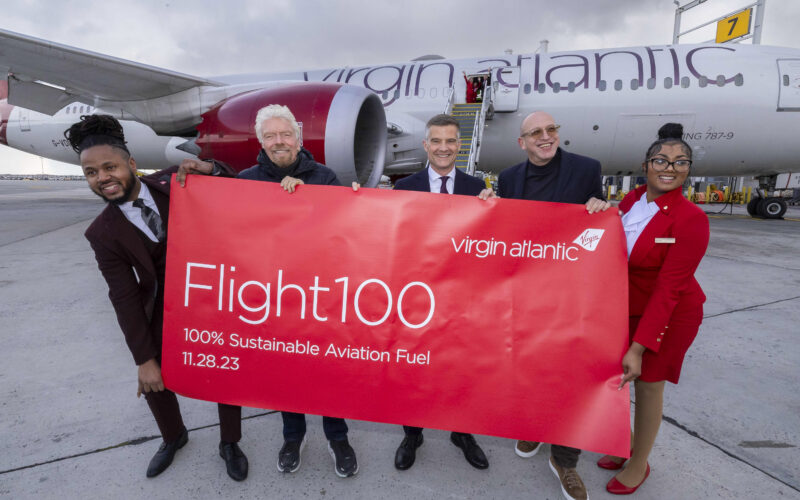In the week that saw the world’s first transatlantic flight by a commercial airliner using 100% sustainable aviation fuel (SAF), its operator, Virgin Atlantic, and fellow UK carrier British Airways, are facing formal complaints over their sustainable flight claims.
The action follows the airlines being accused of misleading potential customers about the environmental credentials of aviation.
Climate awareness charity Possible, along with legal firm Leigh Day, have filed formal complaints against the two major airlines following their claims about reducing emissions from flights.
The complaints, filed with the Organisation for Economic Co-operation and Development (OECD), set out that both airlines are misleading consumers over their claims of reducing carbon emissions from flights. The basis of the complaints raised is that the layperson does not have the expertise to discern the limits of decarbonization technology.
The complaints highlight that British Airways claims to be “driving urgent action towards net-zero emissions” and that the company has a “clear roadmap to achieving net-zero carbon emissions by 2050”. However, analysis has found that the airline’s jet fuel emissions increased yearly between 2016 and 2019.
Meanwhile, Possible alleges that Virgin Atlantic features its “mission to net zero” on its promotional materials but fails to mention it is falling short of its emissions targets.
“The reality is that technologies for cleaner flight either don’t work or don’t even exist yet,” said Alethea Warrington, Possible’s senior campaigner. “We think that airlines’ misleading claims about their emissions are unfair to people who want to do the right thing when they travel. It’s time for airlines to be honest about their sky-high emissions.”
Virgin’s high-profile flight, which the UK government partly funded in conjunction with partners Air BP and Rolls-Royce, successfully landed at New York-JFK Airport on November 28 after seven hours and 17-minute flight from London-Heathrow Airport.
Skepticism remains over the potential use of SAF
Yet, despite the flight raising awareness of the use of SAF as a future means of propulsion for air travel, scientists and environmental groups remain skeptical about the potential for the large-scale use of SAF going forward.
Airlines claim they can use biofuels made from crops or green hydrogen made from renewable energy. However, research published by The Royal Society found that the UK would have to devote half its farmland or more than double its total renewable electricity supply to make enough aviation fuel to meet its ambitions for net zero flying.
The charity also points out scientific literature comparing biofuel lifecycle emissions with conventional jet fuel. It alleged that both feedstocks produce fuels with similar tailpipe emissions to kerosene, and the emissions reductions are claimed to be created at a systemic level.
“For fuels derived from biomass, the land is not available to produce crops for biofuels in sufficient quantities to power aviation without causing hugely damaging deforestation, which increases emissions and makes biofuels just as bad for the climate as kerosene, if not worse,” the charity said.
“We were the first airline to report our carbon footprint more than two decades ago and were the first airline to voluntarily participate in the UK emissions trading scheme,” said a British Airways spokesperson, responding to the claims.
Meanwhile, Virgin Atlantic, who operated the 100% SAF flight, commented that the airline is “committed to achieving net zero 2050 and has set interim targets on its pathway to get there, including 10% sustainable aviation fuel by 2030.”
“There are two levers for delivering in-sector carbon reductions in the short to medium term – the fleet we operate and fuel we burn,” said a Virgin Atlantic spokesperson.
“We already fly one of the youngest and most efficient fleets across the Atlantic. Beyond fleet renewals, SAF presents an immediate opportunity to deliver lifecycle carbon reductions of up to 70% and is something we have been pioneering for over 15 years,” the spokesperson added.

